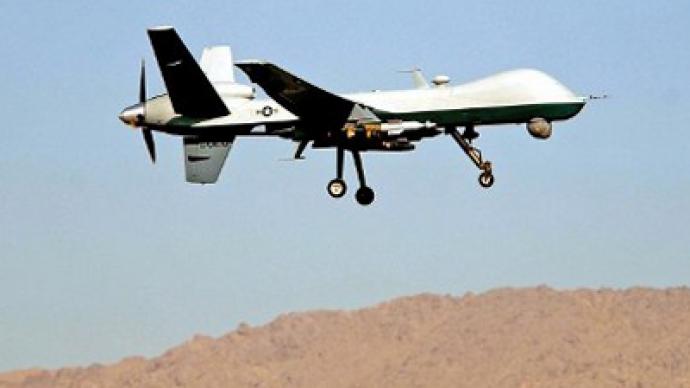US drones spy on Americans - ‘incidentally’

A leaked US Air Force document stipulates a drone that happens to capture surveillance images of Americans may store them for a period of 90 days. The paper appears to justify spying on citizens, as long as it is “incidental.”
The document accepts that the Air Force may not record information non-consensually; however it does state “collected imagery may incidentally include US persons or private property without consent.”The report, dated April 23 was discovered by Steven Aftergood of the Federation of American Scientists and has been put online.Data that is accidentally recorded may be stored for a period of 90 days by the Pentagon while it is analyzed to see if the subjects are legitimate targets for state surveillance. The Pentagon may also disseminate this data among other government organizations if it sees fit. “Even though information may not be collectible, it may be retained for the length of time necessary to transfer it to another DoD entity or government agency to whose function it pertains,” states the document.In addition, it justifies the gathering of data on domestic targets in certain circumstances. According to the paper, these include surveillance of natural disasters, environmental studies, system testing and training, and counterintelligence and security-related vulnerability assessments.The document seems to spell bad news for civil liberties, considering the US government passed a bill in February allocating $63 billion to the Federal Aviation Administration (FAA).If the bill is signed into law it will effectively allow the FAA to fill US skies with drones, a massive 30,000 predicted to be operational in US airspace by 2020.Over 30 prominent civil rights groups in the US have rounded on the FAA and demanded that it reconsider the legislation and hold a rule-making session to address privacy and safety threats.“Unfortunately, nothing in the bill would address the very serious privacy issues raised by drone aircraft. This bill would push the nation willy-nilly toward an era of aerial surveillance without any steps to protect the traditional privacy that Americans have always enjoyed and expected,” said the American Civil Liberties Union in response to the legislation.The bill has sparked fears among Americans that their civil liberties may be under threat, considering that the use of drones in Afghanistan and Pakistan has been extended to carry out attacks on militants.














